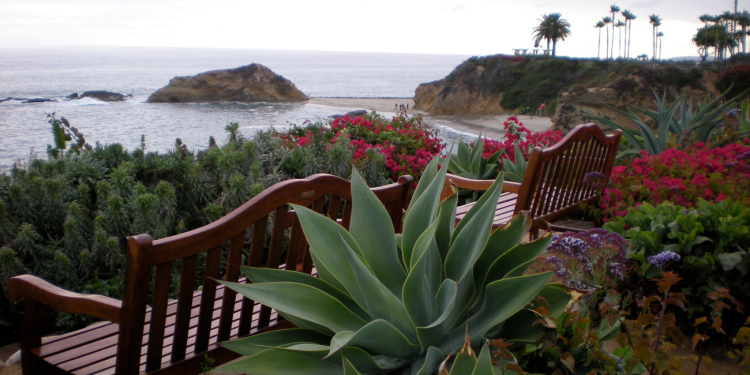
Gary comes from Southern California. He retired in 2013 after serving in the US Army Signal Corps and occupying several corporate executive positions in the private sector for over 35 years. Nowadays, he is enjoying a relaxed lifestyle in Tagaytay, Philippines.
Hi Gary, where are you from and what are you doing nowadays?
I am originally from Southern California. Proudly, I served my country as a member of the US Army Signal Corps where I was the onsite “DSTE” Repairman in classified locations. My professional career includes over 35 years in aerospace quality management and private sector corporate executive positions. I retired in 2013, and moved to the Philippines. My retirement activities include IT/business consulting to other expats.
Why did you choose to move to the Philippines?
After a careful review of preselected countries and multiple visits to each of them (Costa Rica, Panama and Thailand), the final candidate was the Philippines. The main factors that affected my final decision were my general education and language skill levels, compatible religious foundation (i.e., Christian to Christian), graduate university availability, language/tradition similarities, country signage in the English language, and family connections. There was a strong need to be able to communicate in English, drive and read signs in English, complete post graduate studies in English, and find a partner that could communicate well in English.
What has attracted you to Tagaytay?
I avoided low altitude, crowded, polluted and noisy areas. So I researched temperature/humidity averages, higher elevations above sea level, natural forest/fauna available, and proximity to major transportation, medical and food sources. I used the radius of 1.5 hours by car as the outer distance I was willing to travel to get to airports and shopping sources. All of this translated into Tagaytay as the best choice since it is about 700 meters above the ocean (no flooding), has cool fresh air, nightly temperatures that allowed sleeping without the need of air-conditioning, lush greenery not destroyed by tons of concrete and two S&R stores within 30 minutes from the house. There was a trade-off regarding higher housing prices in Tagaytay compared to Manila, but once the air-conditioning cost of about +P 6,000 – 8,000 is added to the electric bill each month in the cheaper areas, the cost of living in Tagaytay is about even.

What procedures did you have to follow to move in the Philippines?
There were no set procedures or requirements to move here. I made the updates and notices I felt were prudent prior to departing California. These actions included notifying my bank, CC Company and the US Embassy that I would be on extended travel to the Philippines. I also made sure my registration and status with the US Social Security Administration was updated, and that I could log onto my account globally. I did not select to have my retirement sent to a Phil Bank and continue to use my US bank for retirement deposits.
How long have you been in the country?
I have been in the Philippines for over three years with one 3-day visa run only.
What surprised you the most at your arrival?
There is a general lack of cleanliness and organization at the Manila international airport.
Was it difficult to find accommodation in Tagaytay?
Good long-term accommodations in Tagaytay require a bit of networking and patience. In my case, it took about 2 days to get a good local deal to avoid the vacation-type super high prices.
What types of accommodation are available in Tagaytay?
There is a full range of accommodations in Tagaytay. Hotels can exceed P 7,000 per night and rental homes can be over P 45,000 per month. However, decent living locations can be found for P 8,000 – 15,000 per month (with full screens and hot water).

How do you find the Philippine lifestyle?
The lifestyle is “one day at a time” orientated. Most do not appear to have long-term plans and work hard for day-to-day. Those who are homeowners are seldom seen as the home here is just a vacation house and may end up looking abandoned (a sight found in many of the partially developed sub-divisions). From an American perspective, I find the locals' lifestyles to be similar to rural Americans of the 60s, just without much security and optimism for the future.
Have you been able to adapt to the country and to its society?
The adaptation process in Tagatay is a bit easier, but full adaptation will never happen. We expats will always compare or contrast our home country to the Philippines and look for or hope for updates that bring us closer to our comfort and expectation zones.
What does your every day life in Tagaytay look like?
My daily life in Tagaytay looks like that of a retired American who is more relaxed and with less stress than many locals. I can be busy or do nothing and it will not affect my retirement income or sense of financial security compared to the hard working locals, who stress each day over their income.
Any particular experience in the country you would like to share with us?
There is a clear sense of entitlement among some locals when dealing with expats. I have been told many times that I am a “rich American” and can well afford the inflated prices some try to apply to me.
What is your opinion on the cost of living in Tagaytay?
The cost of living in Tagaytay compared to many other locations is well above the norm for locals. When I compare Tagaytay to say Bacolod City, it is 3 – 4 times more expensive with land prices being at or above a 10 – 15 times more expensive in Tagaytay.
Is it easy for an expat to live there?
It is easy for most US expats who have the minimum of $800 per month to live in the Philippines, but to live in Tagaytay the expat should have at least 50% more income. It requires a bit of networking and patience.
How do you spend your leisure time?
In general, I enjoy the quiet country setting of Tagaytay, and may spend many hours in front of my computer writing programs and updating my research library that supports my PhD studies. However, when I do go out, driving around in Tagaytay (excluding weekends) is very nice and filled with great views. I have no interest in parties, drinking, or large group activities.
What do you like the most about the country?
Genuine friendships. Once a person becomes truly your friend here, they will do all they can to help you.

Your favorite local dishes?
Chicken “adobo” and “bullalo”.
What do you miss the most about your home country?
I miss the cleanliness, organized and efficient local government functions, polite and orderly driving with much higher observance of traffic laws and the greater integrity in service providers.
Would you like to give any advice to soon-to-be expatriates in the Philippines?
Prior to leaving your home country, make sure you have updated all financial institutions and you are able to access all accounts via the Internet. Bring a newer laptop or desktop computer that already includes a login history to your bank and other important accounts. Bring an already unlocked cell phone, and have a good backup phone. Make contacts with other expats in or near the targeted area prior to your arrival. Have many alternate plans ready to spring in place.
What are your plans for the future?
To remain retired in the Philippines and work on alternate visa options (such as the SRRV) as time unfolds.




















Comments
6I am considering moving to the Central Visaya Region, as an American citizen do I need a Visa to stay longer than 30 days, how much is one, and what is the usual length of time before being granted a Visa?